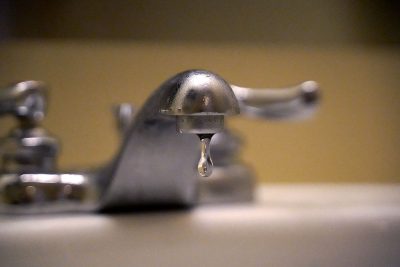
The EPA has awarded $967,000 to Massachusetts to test water in schools and childcare facilities for contaminants, part of a national initiative to stop children from being exposed to lead in drinking water.
The Massachusetts grant, announced Thursday and authorized under the Water Infrastructure Improvements for the Nation act, is part of a larger $43.7 million grant that will be split between state governments across the nation, according to the Environmental Protection Agency.
This grant is part of a larger initiative to stop children from being exposed to lead contamination, according to an EPA press release
The funds allocated to Massachusetts will go to continue the current Assistance Program for Lead in School Drinking Water, a program that helps test drinking water in Massachusetts schools for copper and lead contamination. This program has been in effect in Massachusetts since April 2016, according to the Massachusetts Department of Environmental Protection website.
“The funding… aims to reduce children’s exposure to elevated lead in drinking water,” the press release stated. “The EPA grant is an important piece of an overall Lead Action Plan to reduce lead in all media, including where children live, play, and learn.”
The Water Infrastructure Improvements for the Nation grant aims to help states establish or continue water testing programs for places where children are likely to be exposed, according to the EPA’s website.
Edmund Coletta, press secretary for MassDEP, wrote in an email that the program will teach people about the dangers of water contamination, in addition to testing water in schools and childcare centers.
“The program will … provide free analytical testing for schools and early education and day care facilities that have not been previously tested during the earlier rounds of MassDEP’s Assistance Program,” Coletta wrote. “[It] will also provide training and education about lead in drinking water to the school participants, talk about the importance of testing, procedures for testing, and remediation measures.”
The program is designed to serve communities that may be at high risk for lead exposure such as those in areas that have not been tested by previous Massachusetts initiatives, Coletta wrote.
The EPA recommends states to prioritize facilities where children are more vulnerable to lead exposure, according to the EPA website.
“[Vulnerable facilities include] schools and child care programs in underserved and/or low-income communities,” according to the website. “… Elementary and child care facilities that primarily care for children 6 and under; and older facilities that are more likely to contain lead plumbing.”
Coletta wrote that the Massachusetts Department of Environmental Protection will be implementing the program within the next few months by working closely with the University of Massachusetts Amherst.
“MassDEP will work with our partners at UMass-Amherst to finalize by the end of November an agreement to have UMass-Amherst implement the program for MassDEP, allowing the program to begin by the first of the year,” Colletta wrote.
Fred Burkholder, 59, of the North End, said he thinks the funding is “relatively important” because lead contamination is a hazard to public health. However, he said he is confident about the effectiveness of water treatment in the state.
“We have a state-of-the-art water treatment plant that was put up on Deer Island,” Burkholder said. “They now have, if you check the statistics, one of the cleanest harbors of any city in the United States, so I don’t know how much money needs to be spent.”
Brookline resident Georgia Parker, 20, said she supports the program in areas where lead contamination might be a genuine concern.
“If we have lead in the water, that’s not good, so it’s important,” Parker said. “It’s important, but I don’t know — it’s really tough, because there’s probably a lot of things that are important to spend money on.”
Kat Read, 21, of Fenway said she finds the water in Boston “pretty clean,” and approves of the plan if there is not a less costly alternative.
“I think there are a lot more intense problems in Massachusetts that they should be spending money on but if [lead contamination] was a high risk then I would say that that’s good,” Read said.





An important update on how Mass is staying on top of water standards. Keep it up DFP and Elyse.